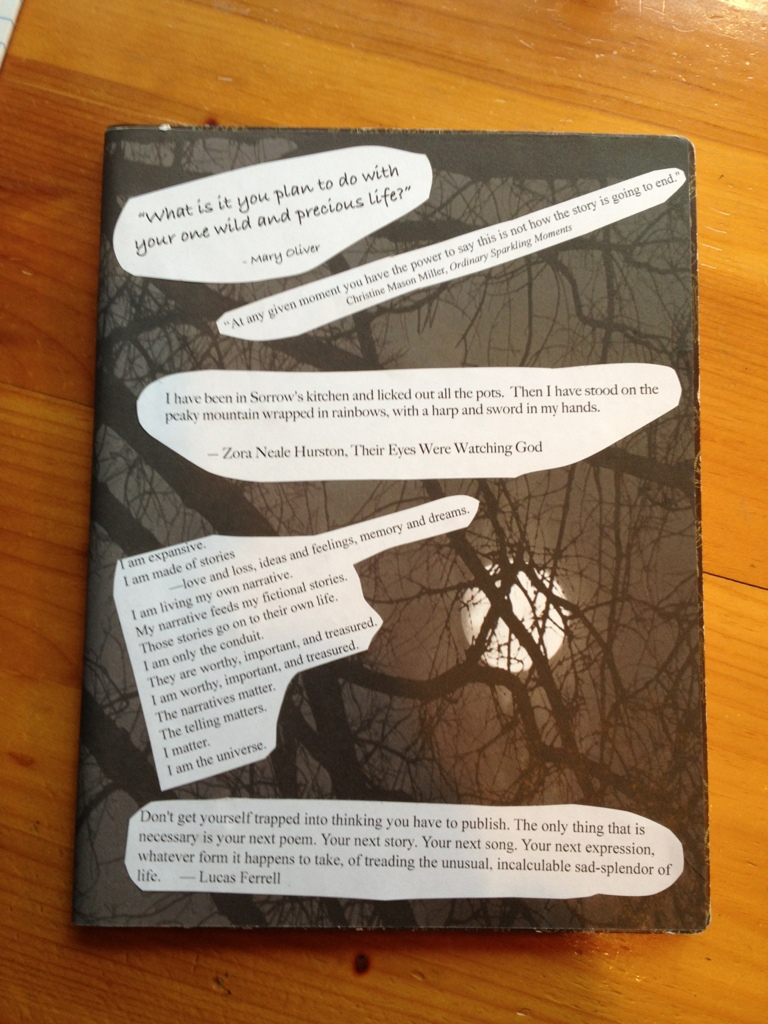I love Ruth Feldman so much. I called her today and discovered that we had both just killed beloved characters in our manuscripts. We decided to hold a wake and commiserate. Writing is hard. Writing is emotionally draining. Grief happens. At least there are friends and food.
All posts by Amber
The responsibility of writers to take on the world
Recently, a friend told me about a painting that depicted Nazi trains carrying Jews to the camps and carried the caption: What would you do?
(No, I don’t expect you to answer.)
He lobbed a different version of that question at me though. What issues are facing the world NOW that carry that kind of weight? What wrongs are being done that we turn away from?
(Don’t worry, I’m not going to share the horrifying list we came up with.)
Then he upped the ante by suggesting that writers have a responsibility to ask uncomfortable questions, to demand change, and to bring out our better selves.
(Okay, maybe I added some of that, but I’m sure he’d be on board.)
Now, my buddy is a journalist, and I’m a writer of kid lit. My first impulse was to say that it incumbent on serious journalist to take on the world’s problems, but YA novels are not the forum for that kind of heavy-duty problem solving.
(A cop-out, I know.)
All you have to do is look at the #YAmatters kurfuffle to know that YA takes on serious topics and probably could take on even more. The current wave of dystopian fiction is a great example of how we can imagine future worlds that will kick us into gear and get fixing stuff NOW.
But this discussion also made me think about why I write kid lit instead of adult literature where, some might say, I could take on more “important” issues.
Answer # 1: Hope. Kid lit is allowed to have a happy ending. We can embrace the possibility of the possible. (See the poem Sometimes by Sheenagh Pugh for a riff on this.)
Answer #2: Change is personal. Kid lit explores how young people become themselves. Picture books clarify the relationship of child to the world. Middle grade is often about finding self within the context of family. YA explores the transition from child to adult. Changing the rest of the world is daunting. Become our own true, best selves is difficult but attainable.
Answer #3: Each of us matters. Kid lit validates the experiences of the young. A book can shepherd readers into self-worth and remind them of their importance to the world.
These readers—equipped with hope, a strong core self, and an unswerving belief in themselves—they are strong enough to face the problems before us and they can change the world.
Another version of a story I can’t live without – SHACKLETON’S STOWAWAY by Victoria McKernan
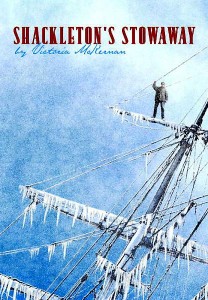 At this post, those of you who know me well will shake your heads gently and send a tolerant look my way.
At this post, those of you who know me well will shake your heads gently and send a tolerant look my way.
I don’t mind. The true thing is that I am deeply, terribly, irrevocably in love with Sir Ernest Shackleton.
I read everything I can get my hands on about Sir Ernest. I have an entire bookshelf devoted to polar exploration with a heavy emphasis on Shackleton. When the American Museum of Natural History hosted a traveling exhibit on the Endurance expedition, I broke the rules. Yes, me, a by-the-book gal if there ever was one, I reached across those imposing velvet ropes to sneak a touch of the James Caird. How could I pass by the very boat in which Shackleton crossed 800 miles of open ocean to get help for his stranded men without a caress?
And yes, it’s true… my son’s first name is Shackleton.
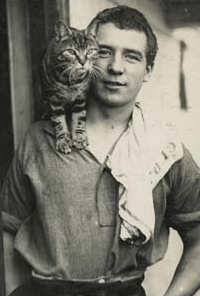
I read this book when it came out in 2005 from Knopf but just finished re-reading it aloud to the kids. It thrilled me as much as ever. As told (mostly) through the eyes of Perce Blackborrow, an eighteen year old who stowed away on the Endurance (seriously), we see Shackleton at his finest. Yes, he was strong and smart and brave, but he also had a genius for reading people, for intuiting their needs, and for finding ways to bring out the best in each man.
I could go on and on about the story of the Endurance and Shackleton himself, but I’ll restrain my crazy self and leave you with two things. First, a quote from this compelling book:
Every day for months, they had walked with death. They had slept beside death, swallowed it whole, laughed at it, cowered from it, taunted it, sometimes longed for it. But death had proved to be no real match for twenty-eight ordinary men.
Second, Shackleton’s family motto:
By endurance, we conquer.
Words to live by, friends. Words to live by.
“Into the fire with you” – character transformation through crisis vs reframing the narrative

Recently my critique group and I got down to serious psychologizing about a main character in one of our mss. It got me thinking about the differences and similarities of character transformation in fiction and human transformation in real life.
Someone smart–who I wonder?–said fiction is real life without the boring parts. My seven-year-old daughter, well-schooled by her K/1 teacher and her writer mother, says, “I hate books without trouble!”
So true! In most compelling fiction, we take a flawed but likeable main character and do one bad thing after another to her. Through this crucible of fire (every once in a while, I love a good cliche), she is transformed. She learns. She grows.
Now I’ll be the last person to say there’s no trouble in real life. Damn, but I’ve had my share of the slap-down by Life. However, I think it is pretty rare for us to experience something difficult, have an epiphany in the moment, and be instantly transformed. Maybe people who’ve had near-death experiences know this kind of transformation, but that’s got to be rare.
The more common psychological state is that we–often unconsciously–develop a fixed “narrative” for ourselves. For example, “I failed to attain my dream of becoming a ballet dancer because I’m not talented and special enough.” That “story” can haunt our psyche for years (or mine, as the case may be). It requires mental effort and commitment (and therapy) to REFRAME the narrative. Mine now says something like, “I wasn’t able to reach the level of professional achievement as a dancer that I wanted because I was young and didn’t have proper mentoring from my parents or my ballet instructor.”
Rewriting our own narratives is HARD work! And it’s boring work. Maybe that’s why we like fiction and the transformation by fire it offers. Maybe we’d also like fiction that shows the slow, hard work. Maybe we need to remember that our own story matters.
“At any given moment you have the power to say this is not how the story is going to end.”
– Christine Mason Miller, Ordinary Sparkling Moments
When writers hang with evil peeps…
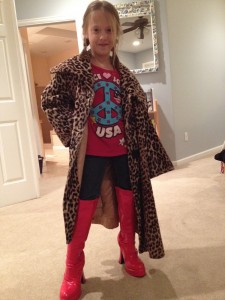 This morning as I walked the kids to the school bus, my daughter said, “Mom, I don’t want you to be lonely while we’re at school.”
This morning as I walked the kids to the school bus, my daughter said, “Mom, I don’t want you to be lonely while we’re at school.”
“I won’t be lonely. I’ll be writing,” I said.
“But you’ll be all alone in the house all day.”
“But I’m hanging out with my characters. I’ve got Mara and Ethan to keep me company.”
“But Mom,” she said, genuinely worried, “the rest of them are evil!”
Starting a new journal = hope
In S. Oregon or N. Cal? Join me at the South Coast Writers Conference – February 17 & 18
I’m thrilled to be on the faculty for the South Coast Writers Conference in lovely Gold Beach, Oregon. This event includes writing for all genres and age-ranges and includes nonfiction writers, a song writer, poets, journalists, and writers of literary fiction.
The workshop offerings are great, the setting inspiring, and there is time for making connections with faculty and other writers. I’ll be teaching about graphic novels and how reading can make you a better writer. YA author, Anne Osterlund, will be there too.
For the full brochure, click here.
Great interview with Michaela MacColl, author of PROMISE THE NIGHT @michaelamaccoll
 I am thrilled to welcome Michaela MacColl to my blog! Her book PROMISE THE NIGHT tells the story of young Beryl Markham, who grew up to be a record-breaking aviatrix, an adventurer, a nonconformist, and a writer.
I am thrilled to welcome Michaela MacColl to my blog! Her book PROMISE THE NIGHT tells the story of young Beryl Markham, who grew up to be a record-breaking aviatrix, an adventurer, a nonconformist, and a writer.
Read an excerpt here.
Below you’ll find the conversation we shared about her lovely book.
***
My other blog, VivaScriva.com, focuses on critique and the writing process so let’s start there. Do you have a critique group? What role did critique play in PROMISE THE NIGHT?
I have a lovely critique group. We’ve met weekly for six or seven years now. Most of us are published, but we didn’t start out that way. I have to admit that my group saved the world from a very bad biography of Beryl Markham.
When I first decided to write about her, I found that the only kids’ biographies were very dated. Aha! I thought. (And I can’t believe I even said this) How hard can it be to write a biography? Apparently it is really hard. I couldn’t get away from the fictionalized story I wanted to tell. Finally my group metaphorically shook me and said “Just write a novel!” They were right and so supportive.
When I’m writing nonfiction, I find that the book falls into place when I discover the right format for the story. In PROMISE THE NIGHT, you alternate eleven-year-old Beryl’s narrative with grown-up Beryl’s flight across the Atlantic. How did you decide on this structure?
One of my greatest challenges was how to write a story about Beryl the child, when Beryl the adult is the one who did something famous (she was the first to cross the Atlantic East to West solo). At first I wrote the flight as an epilogue, but it felt too tacked on. I had to find a way to show how Beryl’s adventures as a child enabled her to break flying records as an adult. It was complicated because I wanted to relate each adult vignette to a childhood chapter – but after many outlines and a ridiculous number of post-its, I came up with a structure that worked.
I loved Beryl Markham’s own book WEST WITH THE NIGHT. How did her writing influence yours?
On the one hand, it’s a gift to have her own words in front of me. I learned so much about her personality from the way she described her childhood. On the other hand, it’s pretty daunting since the memoir is so good. Ultimately, I tried to channel her spare prose into mine. I ruthlessly trimmed (and then my editor got started) until I told the story in as few words as possible. Beryl wouldn’t have wasted words, neither should I!
Of course this was such a departure from my first book, Prisoners in the Palace about Princess Victoria. There the language is ornate, layered and thick.
You had to deal with some tough (and very adult) topics—male circumcision, the Captain’s relationship with Emma, his concerns over Beryl’s interactions with Kibii and Mehru. Some might have said it couldn’t be done in a middle grade novel, yet you pulled it off. Can you tell us how you found your way in this area?
I’m pretty squeamish, so I didn’t want to make people squirm. I’m also the parent of two teenage daughters and it’s important to me that kids can read my books without feeling too uncomfortable. Ultimately the answer to dealing with these issues was to plant my narration firmly in Beryl’s point of view. She’s not shocked so why should the reader be?
Beryl Markham chafed against the rigid social and gender roles of her time. How do you think she would have responded to the opportunity and freedoms girls have today?
I’ve wondered about that. Thoroughbred racing and flying were inherently exciting and a natural destination for a risk-seeker no matter how inappropriate they were for a girl to do. But I think if she were alive today, she would be taking even greater risks. Ultimately though, Beryl didn’t think of herself as a girl breaking gender barriers, she was just doing what she wanted to do. The first page in Promise the Night is a quotation from Beryl where she says she wants to fly the Atlantic not as a society girl but as pilot. No gender specified.
I’ve always been fascinated by the heros of the Golden Age of Exploration like Beryl Markham, Ernest Shackleton and Edmund Hillary. What do you think drove them to take such risks in their quests to be first?
They say that thoroughbred stallions are bred to win. They run fast to achieve dominance over their peers (so to speak). I think the explorers and the pioneers are all trying to win the acclaim of the other explorers and pioneers. But there is also a financial consideration. The person who breaks the record is the one who gets the sponsorship deals, the speaking engagements, even the movie gig.
Are there any new frontiers for girls today?
The first thing that comes to mind is President of the United States… And if that’s the last frontier, then girls are doing well!
True confessions—my daughter is named Beryl and my son is Shackleton. Do you think I’m crazy?
Yes! (I had to talk my husband out of naming our first daughter Cassandra. Can you imagine a more ill-omened name?)
What is the most interesting thing that you learned about Beryl Markham but couldn’t include in the book—and why couldn’t you?
Beryl’s childhood is full of instances when she challenges the societal norms and does purely as she likes. When she continued to do this as an adult, the stakes get higher. The most fascinating thing I found out about Beryl involved her love life. She married Lord Markham in her late 20’s, but at the same time, she also had a very public affair with the Duke of Gloucester (the brother of the Prince of Wales) when he visited Africa on safari. Her husband got fed up and threatened to name the Duke in the divorce. Needless to say Buckingham Palace had a strong opinion about this; Markham was told in no uncertain terms to involve the Duke. He replied that he wasn’t going to support her. So until the day she died, Beryl received a pension from Buckingham Palace. It’s a great story, right? So inappropriate for middle grade!
PROMISE THE NIGHT focuses on a narrow window of Beryl Markham’s extraordinary life. Were you ready to let go?
I wouldn’t mind going back and writing about her life as a racehorse trainer. I grew up on the Black Stallion novels and I would love to write about racing. Otherwise, on to the next novel!
Lions and leopards and airplanes, oh my! Must read: PROMISE THE NIGHT
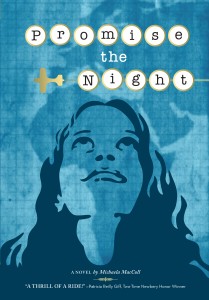 In a few days, I get the distinct pleasure of interviewing Michaela MacColl, author of PROMISE THE NIGHT (Chronicle Books). This middle-grade, historical fiction tells the story of Beryl Markham–adventurer, pilot, race-horse trainer and non-conformist. She’s a dazzlingly unique character made all the more fascinating by the fact that she was a real person!
In a few days, I get the distinct pleasure of interviewing Michaela MacColl, author of PROMISE THE NIGHT (Chronicle Books). This middle-grade, historical fiction tells the story of Beryl Markham–adventurer, pilot, race-horse trainer and non-conformist. She’s a dazzlingly unique character made all the more fascinating by the fact that she was a real person!
Here’s a bit of the beginning:
Later, when it was all over, she wondered what would have happened if she had remembered to tie down the burlap door. If she had not been so careless, would the danger have passed her by?
Her only warning was a patch of lighter night by the door. The leopard must have slunk in, crawling soundlessly on his stomach the way cats do. Ears flat to his head. Spotted fur standing up on his back. Eyes fixed on his prey. Waiting. Waiting. . .
Buller’s anguished yelp filled the hut. When she heard the deep yowl, she knew it was a cat, probably a leopard. Beryl huddled beneath the safety of the mosquito netting, afraid the cat would finish off Buller and then go after her.
“Buller! Be careful, boy!” Beryl screamed at the top of her voice. She waved the knife in the dark. She couldn’t see what was happening, but she could hear Buller’s low growl. She imagined that the leopard was poised to spring onto her bed.
“Daddy!” she cried. She ripped off the blanket and snapped it toward the battling animals. Even if she had the courage, Beryl knew she shouldn’t join the fight on the floor; she was just as likely to hurt Buller as help him.
Beryl could make out the leopard’s shadow, spotted even in the dimness. It sprang onto Buller’s back and sank its sharp teeth in the loose skin at the back of his neck.
“DADDY!”
Beryl heard what sounded like Buller’s back cracking as he tried to shake off the cat. Before she could scream again, the leopard had dragged her best friend in the world out of her hut. Buller’s cries ended as suddenly as they began.
You can read the entire first chapter here. And don’t forget to check back on the 20th for the interview!
Be the teller of your own narrative. Make it a good story.
I’ve had a really good writing week. For me that means being so deeply immersed in my book that it begins to seem more real that my actual life. I surfaced this morning–Saturday, and thus a non-writing day–and reacquainted myself with “normal.” (Nothing like cleaning bathrooms to get your head out of the clouds.) I went for a run in the forest near my house in spite of the icy, driving rain. There’s this ginormous hill that I’ve never been able to run all the way up. For the last year in which I’ve been running regularly, there’s always a point on that horrible hill where I have to stop and walk a bit. Except this week. This week, I’ve run all the way up every time. By the time I get to the top I’m sucking wind and cursing under my breath, but I’m also fully back in my own life again. And I’m reminded that we must be the tellers of our own narratives as well. It’s not enough for our characters to have adventures and grow and change. We have to attend to our own stories too. I plan on making mine a good one!
